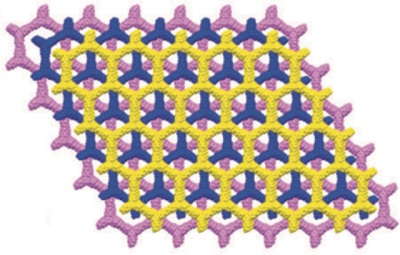A step to understanding polymorphs
 In a paper published in Acta Cryst. B, (2016), doi: 10.1107/S2052520616017297 Carol Brock of the University of Kentucky looks at some of the organizing principles behind crystal structures with high Z’, where Z’ is loosely the number of symmetry-independent molecules in the asymmetric unit. This study lies at the very heart of understanding and being able to control properties of molecular structures. Pharma and agrichem industries attach great importance to understanding crystal structure. The solid form impinges directly on properties such as solubility, bioavailability, processing characteristics, bulk density, dissolution rate, permeability, surface electrostatic charge and so on, so it is imperative to have a clear understanding of the molecular-level make-up of a material and how this affects its properties. This study illustrates that the high Z’ phenomenon, like polymorphism itself, has many root causes but careful study of each structure allows the identification of organization principles in most cases.
In a paper published in Acta Cryst. B, (2016), doi: 10.1107/S2052520616017297 Carol Brock of the University of Kentucky looks at some of the organizing principles behind crystal structures with high Z’, where Z’ is loosely the number of symmetry-independent molecules in the asymmetric unit. This study lies at the very heart of understanding and being able to control properties of molecular structures. Pharma and agrichem industries attach great importance to understanding crystal structure. The solid form impinges directly on properties such as solubility, bioavailability, processing characteristics, bulk density, dissolution rate, permeability, surface electrostatic charge and so on, so it is imperative to have a clear understanding of the molecular-level make-up of a material and how this affects its properties. This study illustrates that the high Z’ phenomenon, like polymorphism itself, has many root causes but careful study of each structure allows the identification of organization principles in most cases.
Brock leaves the door open for future research saying “very few structures are so complex that it is difficult to understand how the crystals could have formed”. This comprehensive survey, in conjunction with a groundswell of work by a number of groups on this increasingly intriguing problem over the past 20 years, shows that there is no one-size-fits-all explanation and that the details of each structure are uniquely tied to the chemical details of the molecules that comprise it. The search goes on, but perhaps we are now at least beginning to know how to formulate the question.
Taken from a commentary written by Jonathan W. Steed and published in the journal Acta Cryst B.

